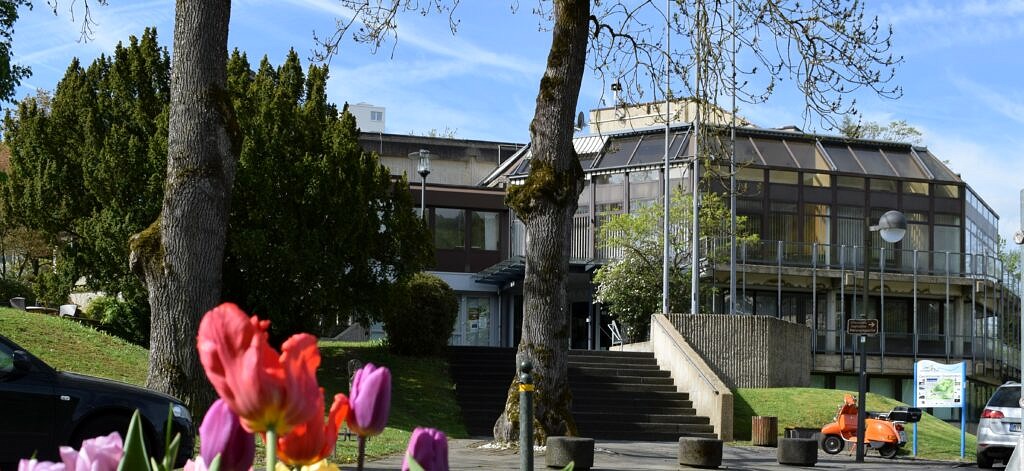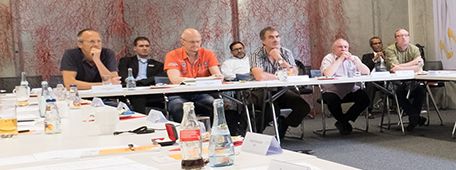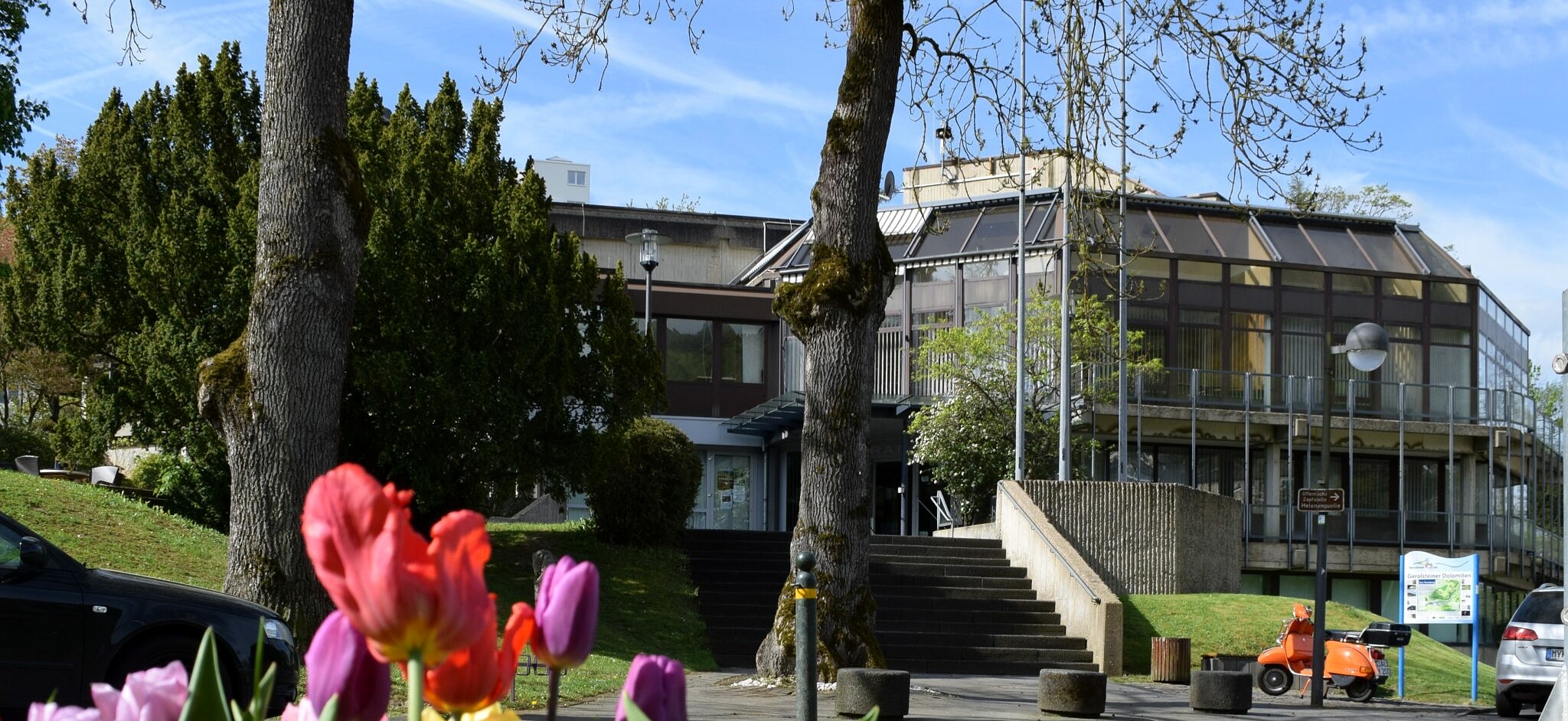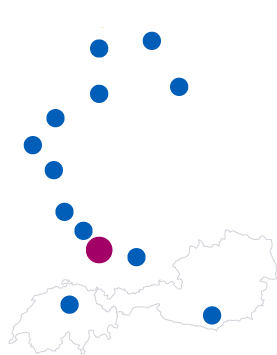Municipality of Gerolstein/Rhineland-Palatinate
Merger leads to digital administration
Challenge
Turning three into one! Good communication and intensive collaboration are essential for merging three municipalities within a short time and creating a new administration – especially if the restructuring occurs at the same time with a comprehensive launch of digital processes. It is doable, however, as the merger of the municipalities of Obere Kyll, Hillesheim and Gerolstein from Rhineland-Palatinate shows. Just eight months from the time it fulfilled the legal requirements, the joint new “municipality of Gerolstein” became a reality at the start of 2019 – at the same time, the community successfully completed its digitization project launch.
The biggest challenge of this whole feat was the time aspect, according to Richard Bell, Head of Finances in Gerolstein, who managed implementation of the completed digitization project:
The administrative management wanted to use the merger as an opportunity to make important progress for the new administration. One of the key steps in this process was convincing employees from Hillesheim and Gerolstein of the benefits of using the Infoma newsystem financial software. – Richard Bell
The primary goal was to implement the integrated solution that had been used in the municipality of Obere Kyll for many years already, in all three boroughs. This would bring them to the same, higher technological level, although they all came from very different digital worlds. The foundation was set for consistent digitization of the entire administration; it was time to establish standards, workflows and software solutions that were consistent and considered the interests of all departments. The municipality was rewarded for this leap into the digital future of administration (with the full support of their workforce) that same year when they won the Axians Infoma Innovation Prize.
Solution
Richard Bell is convinced that the municipality which, with over 30,000 inhabitants is now the sixth largest in Rhineland-Palatinate, is on the right path: “We are well on our way in terms of the goals we formulated. The project did require some overtime hours, but ultimately our hard work paid off. The feedback we are getting from local groups, politicians and citizens is evidence of that.” Digital workflows have already replaced paper-based processes, such as invoice processing, booking interface approval and the decentralized launches in residents’ offices, thereby completing an important part of the first phase of implementation.
The top concern among the defined core points was implementing the interdisciplinary ERP system. Modern, standardized and digital processes, like those facilitated by Infoma newsystem, are designed to help structure a modern administrative organization. This also required setting up an all new IT structure. The launch of central address management for the roughly 42,000 available addresses, and writing tax assessments were both part of this first phase, alongside planned measures such as meter management and water consumption metering in municipality plants, with the option of easily recording water meter readings online for citizens. “We want to improve citizens’ digital integration, in particular” says Richard Bell. “By implementing the E-Payment module for electronic payment after warnings, we will soon be able to offer another citizen-oriented service in the administrative contact.”
The administration certainly has not exhausted all of its opportunities, however, with the activities it has already implemented or plans to implement in the near future for truly award-winning innovative administration. The agenda of the new municipality for the near future includes digitizing facilities management and time and resource recording for municipality plants and depot employees via apps, as well as planning on the issues of document management, council and citizen information systems and meeting management. Budget planning for the 38 local groups will also be handled digitally already this year.
Benefits
Now, such a complex project is not a sure-fire success. Instead, it requires even, consistent management and the full acceptance of those involved. This is why a managing group was formed for completing the overall project, with representatives from all involved departments from the former municipalities and responsible advisers from Axians Infoma – an initiative that proved to be both successful and expedient. Monthly meetings during the first phase of the project guaranteed direct management, in particular of new project situations.
At the same time, the participants succeeded in gaining acceptance from the roughly 120 employees from the start.
“Because we were merging three administrative units, it was particularly important to get the whole workforce on board” – explained Richard Bell. – “There are people who are open to and who support change, and there are people who have difficulty with it and who have to be convinced of the benefits of change.”
In his opinion, “continuous and transparent communication” are essential at all levels. This is achieved, for instance, by sending a regular newsletter to employees, where the project management group provides current information on their progress. In addition, the workshops and trainings that were held were open and transparent from the start. Support from colleagues who had been working with the systems for some time already also provided to be a good way to eliminate reservations and generate acceptance.
In the meantime, all employees of the former three municipalities are familiar with using the integrated solution Infoma newsystem and the consistent electronic processes it facilitates in their everyday work. However, the 38 local mayors, 18 village heads and roughly 31,000 inhabitants involved also benefit from the new digital administration thanks to added service and convenience.

For the planned comprehensive digitization, the merged association communities were initially raised to the same technological level.
Key data
Product Financial Accounting
State Rhineland-Palatinate
Number of inhabitants
31.000


























